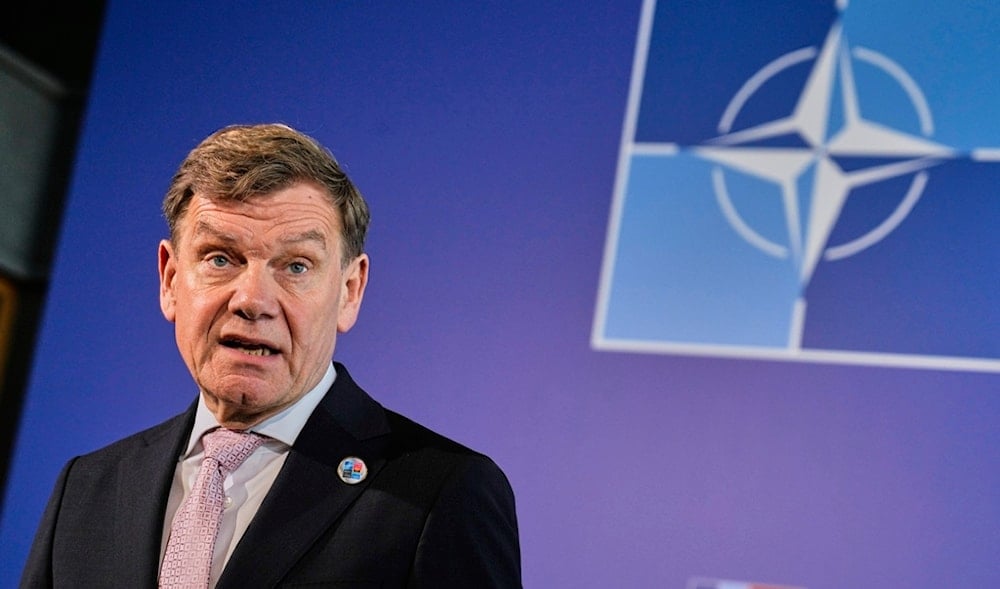German FM: Berlin no longer in 'definite peace' with Moscow
Germany’s foreign minister says Berlin is no longer in a state of ‘definite peace’ with Russia, signaling heightened tensions while stopping short of calling it war, amid NATO-Russia friction.
-

Germany's Foreign Minister Johann Wadephul talks to journalists as he arrives for a NATO informal meeting of foreign ministers in Antalya, southern Turkey, Thursday, May 15, 2025 (AP)
German Foreign Minister Johann Wadephul stated on Friday that while Germany is not at war with Russia, the two countries can no longer be considered to be in a state of "definite peace."
“I would avoid the term ‘war,’ but we are no longer in a state of definite peace,” Wadephul told Süddeutsche Zeitung in an interview published Friday, responding to whether Germany and Russia are now engaged in a "hybrid war."
This comes amid reports that German Chancellor Friedrich Merz is in favor of transferring the German-made Taurus KEPD 350 missiles to Ukraine but is holding back due to resistance from the Social Democratic Party (SPD), his key coalition partner.
Russia issued a stark warning to Germany, declaring that any move to supply Taurus long-range cruise missiles to Ukraine would constitute direct participation in the war and could trigger severe consequences.
Echoes of past statements
Wadephul’s remarks come after earlier controversial comments by former Foreign Minister Annalena Baerbock, who said in 2023 that European nations were “at war” with Russia. Her statement sparked political backlash in Germany, eventually leading to a public retraction.
Defense Minister Boris Pistorius has also warned multiple times that Germany must be prepared for war by 2029, citing rising security threats attributed to Russia.
Moscow rejects aggression accusations
In contrast, Russian President Vladimir Putin reiterated in a 2024 interview with US journalist Tucker Carlson that Moscow has no intention of attacking NATO members. Putin accused Western leaders of exaggerating the Russian threat to divert attention from domestic challenges.
Putin is also seeking a written commitment from Western powers to halt NATO’s eastward expansion and partially lift sanctions as part of his conditions to end the conflict with Ukraine, according to three Russian sources with knowledge of the negotiations cited by Reuters.
The demands include ruling out NATO membership for Ukraine, Georgia, Moldova, and other former Soviet republics, ensuring Ukrainian neutrality, lifting some Western sanctions, unfreezing Russian sovereign assets, and ensuring protection for Russian-speaking populations within Ukraine.
The Kremlin has expressed ongoing concern over NATO military buildups near its borders, insisting that Russia poses no threat but will respond to any moves it deems harmful to national security.
Russian Foreign Intelligence Service (SVR) Director Sergey Naryshkin warned that Europe is undergoing an aggressive push toward militarization, driven by what he called an "imaginary threat from the East."
Speaking at an international gathering of senior security officials, Naryshkin drew stark comparisons between current European rhetoric and the propaganda used by Nazi Germany before World War II.
Read more: European nations weigh deployment of 30,000 troops to Ukraine: WashPo

 3 Min Read
3 Min Read









